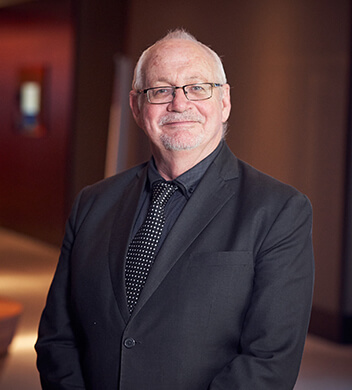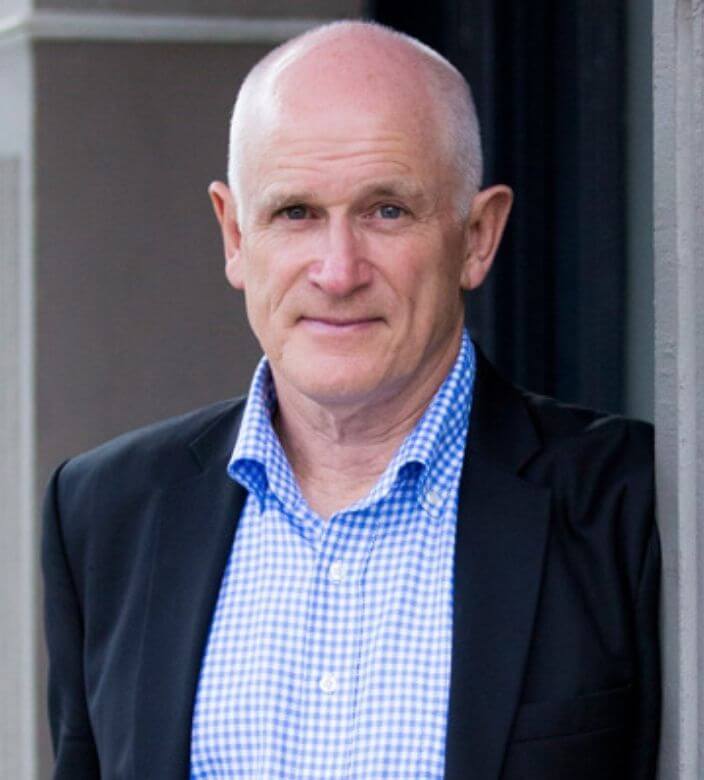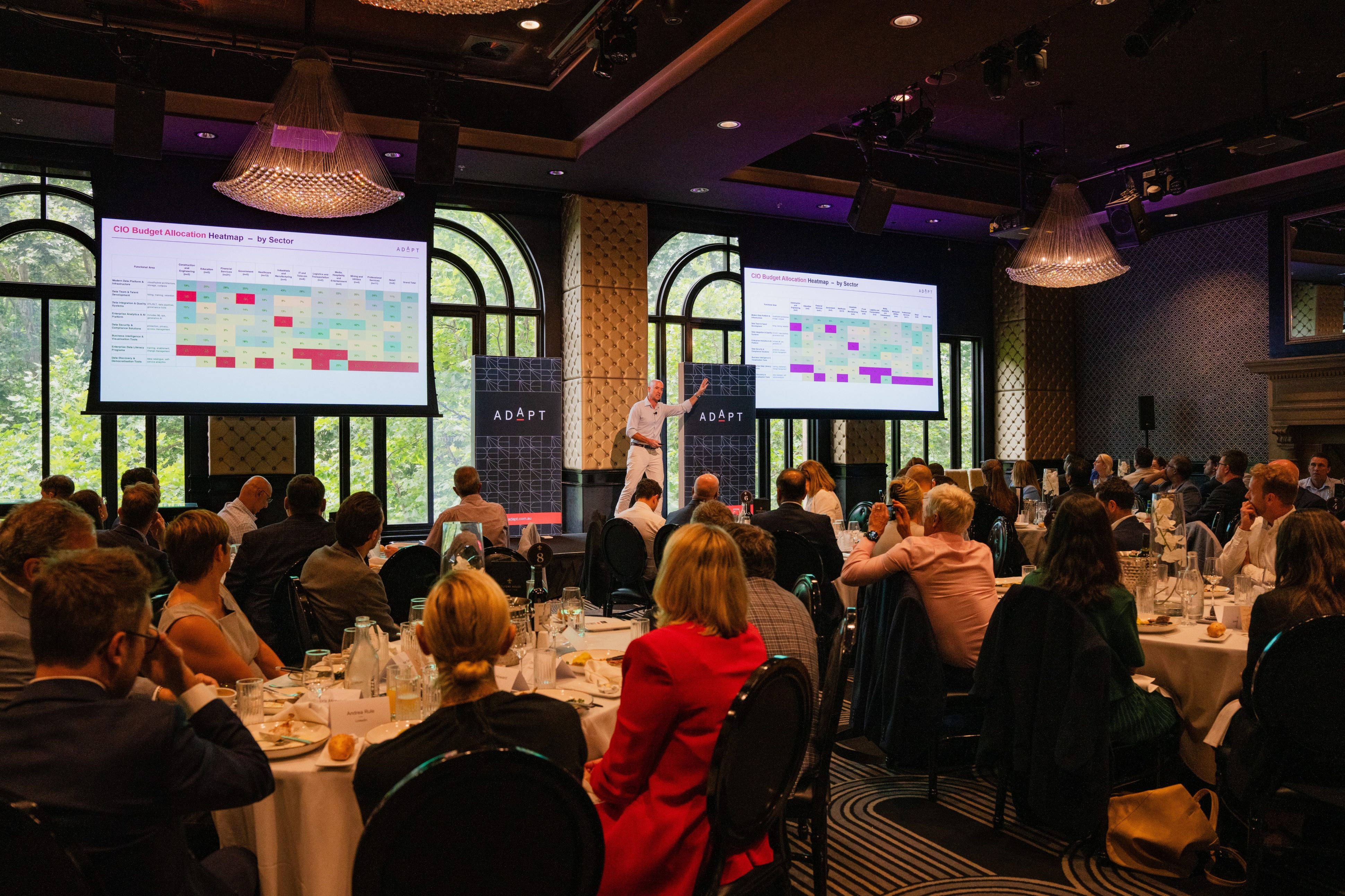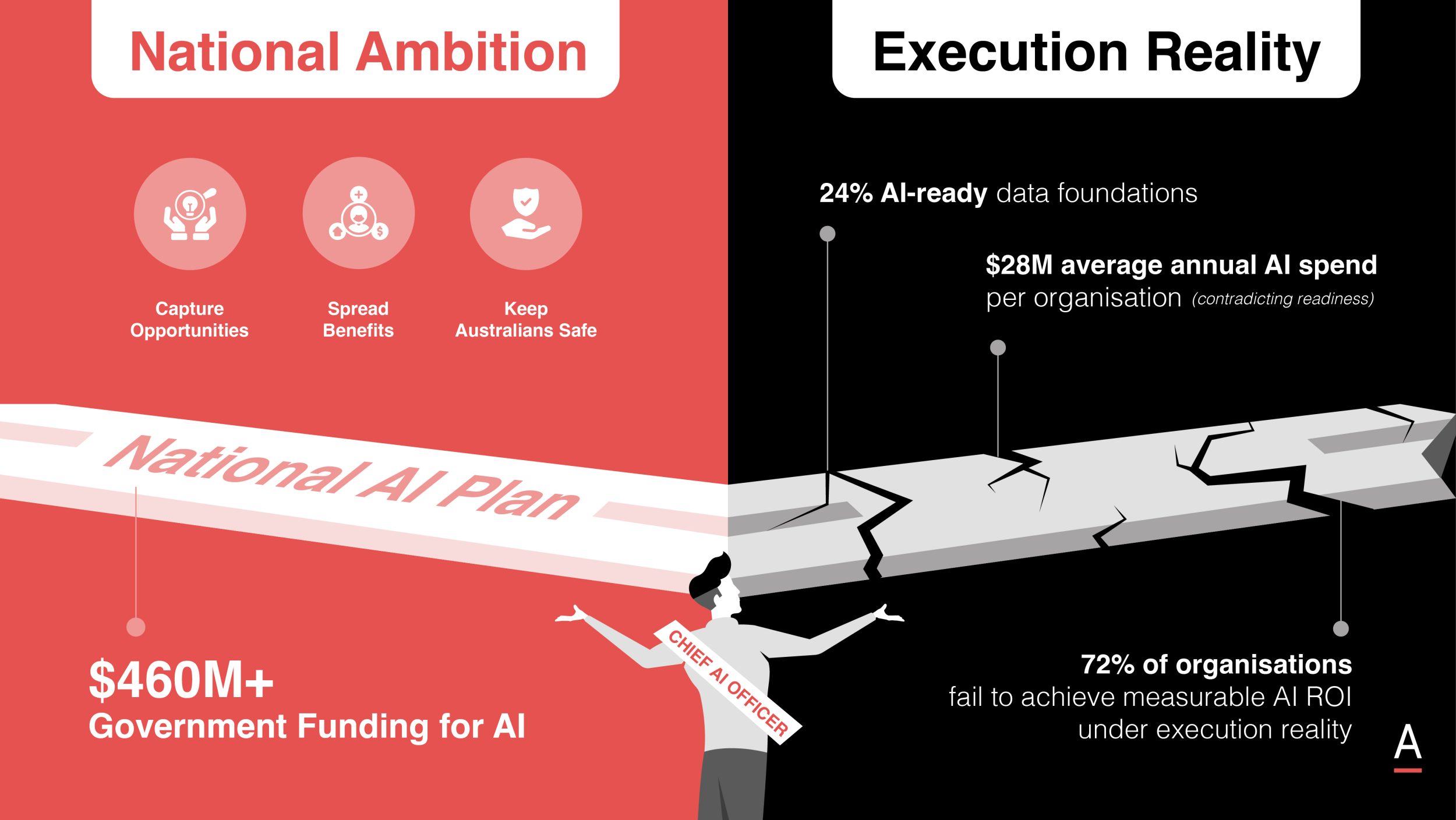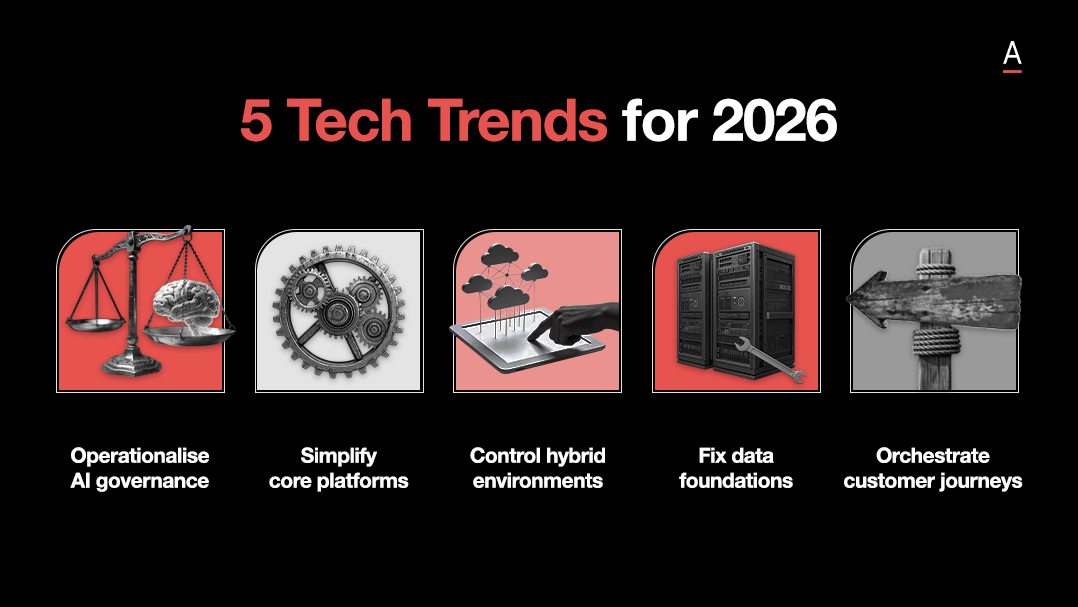The Skills Shortage Meets Employee Experience
Engaged employees are key to business success and staff retention.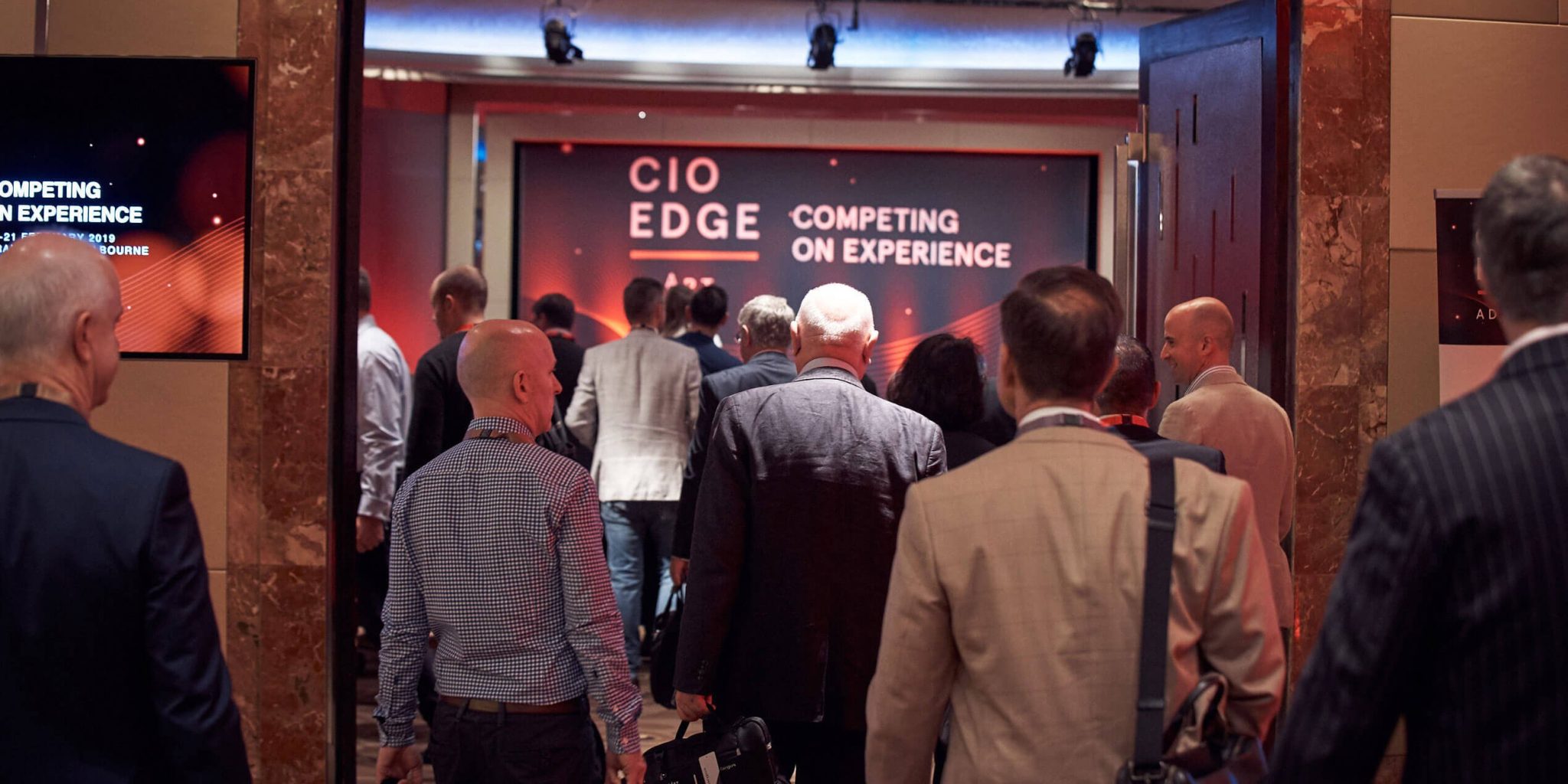
The Skills Shortage Meets Employee Experience
Australia is suffering an IT skills shortage. There are many reasons, including the failure of Australia’s policymakers to understand the nature of technology and the skills it requires. This is not improving.
The technology industry itself is also to blame. Many technology users and developers suffer from short-termism and do not recognise the importance of investing in people’s and ultimately the organisations future. Australian organisations need to invest more in training and in enhancing their employees’ skills sets.
The best way to do this is to ensure an enhanced employee experience (EX).
What you need to know
Three quarters of respondents to a recent ADAPT CIO Edge survey said that a lack of IT skills is challenging their ability to achieve their digital transformation goals.
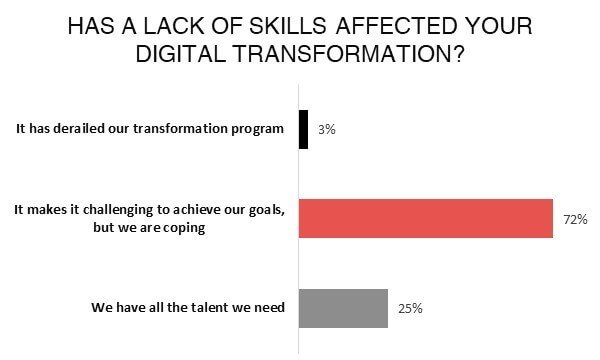
Source: ADAPT CIO Edge survey, 2018
- Employment projections indicate a growing skills shortage. ADAPT data and analysis supports this.
- Many CIOs do not appreciate just how significant the shortage of skills is for their organisations. They see the challenge through the prism of their role as the technology leader for the organisation. In this context the unavailability of skill sets is seen as a middling impediment to their organisation’s agility.
- Making your organisation a rewarding and desirable place to work will help you attract and retain good staff.
- Providing an enhanced employee experience can be a very cost-effective way to enhance organisational performance. Technology is integral to people’s work experience. CIOs need to recognise that they have a vital part to play in helping their executives create a contemporary and empowered work environment that draws people to work for an organisation.
- Some skills are on shorter supply than others. Australian CIOs are having difficulty hiring data scientists, with more than half (57%) finding it ‘impossible’ or ‘very difficult’ to find them. Many are also having difficulty finding cybersecurity (32%) and architecture (29%) specialists.
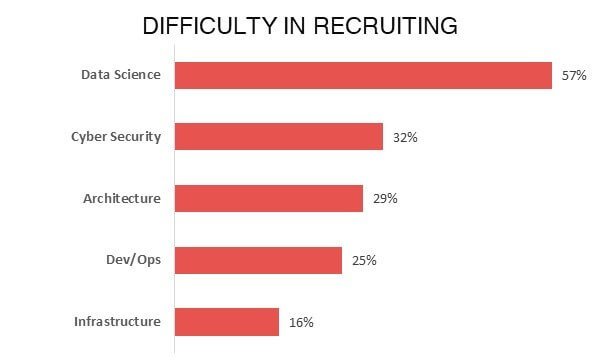
Source: ADAPT CIO Edge survey, 2018
How you need to react
Less than half of CIOs believe their organisation’s employees are major sources of ideas or contributors on new products and services. They are undervaluing the potential of the organisation’s employees.
Many CIOs are ambivalent about their attitudes towards their organisation’s employees and their levels of contribution and cooperation. Less than half said their employees responded ‘very well’ or ‘fairly well’ in the areas polled. There were few outright negative responses, but the survey shows that CIOs generally are not overly positive about how their organisation’s employees contribute.
Nearly half say that their organisation’s employees naturally contribute when others outside their departments propose ideas (8% ‘very well’ and 40% ‘fairly well’). Other areas do not do so well – even fewer CIOs say that their organisation’s employees actively contribute ideas for new products and services (6% and 35%) or that they are constantly looking for new value-added approaches to doing their work (6% and 29%).
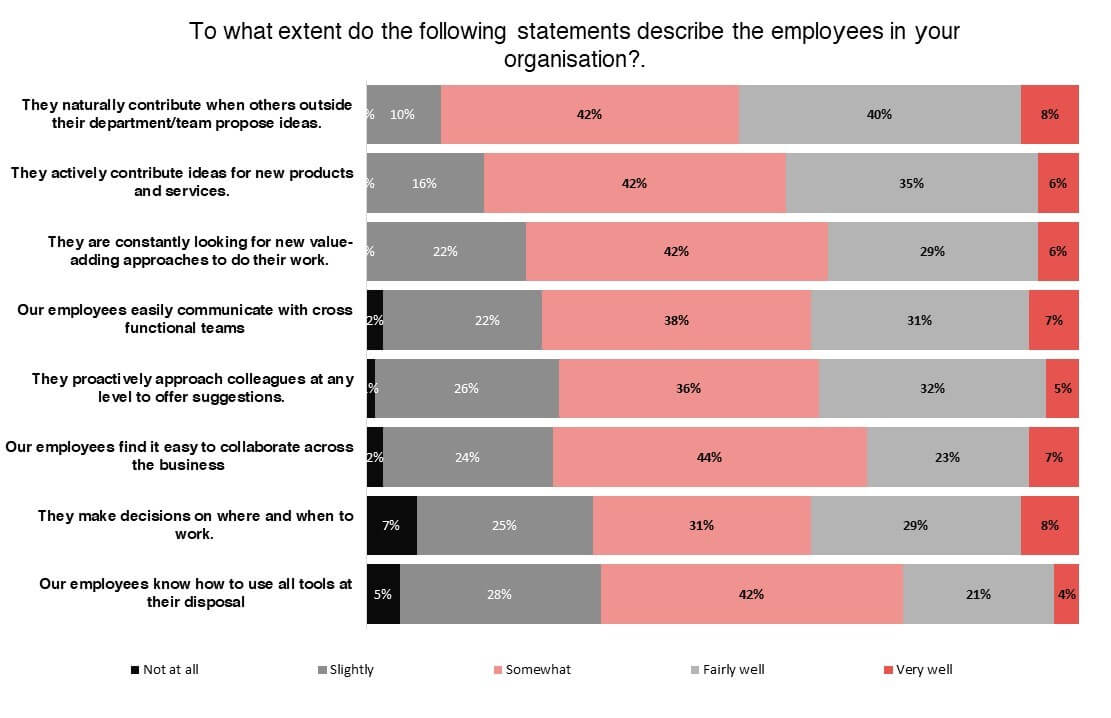
Source: ADAPT CIO Edge survey, 2019
- Every organisation and every department have a responsibility to grow employees’ skills and enhance their abilities. Implement a formal program to do this. Ignore the old furphy of ‘If I train them, they’ll just get a better job elsewhere’. It is your responsibility both to train them, and to ensure that your organisation is that better place, in order to retain them.
- CIOs need to better understand why executives see this as one of their top issues. Reaching out to colleagues in areas like HR, operations and sales to learn about the difficulties they face in recruitment will shed insights.
- Investigating the office environments in places that score highly on places where people like to work will give other insights. Then work with designers to see how technology can embellish their ideas for creating contemporary offices.
- Explore new technologies that will make your organisation a better place to work: collaboration tools, videoconferencing, activity based working arrangements, GPS location services to find staff, scheduling tools to assist with the allocation of common areas, the latest mobility technologies, toolsets to enhance processes and workflows, etc.
- Most employees want to contribute more. You need to ensure that they can.
The bottom line
ADAPT’s research indicates that many CIOs do not appreciate just how significant the skills shortage is for their organisations, or that it is likely to get worse. CIOs need to take a whole-of-business approach when working to attract and retain high quality skilled staff. This must be done via a proven track record with their peers demonstrating how IT and the experience it delivers plays vital role in this critical area.






















